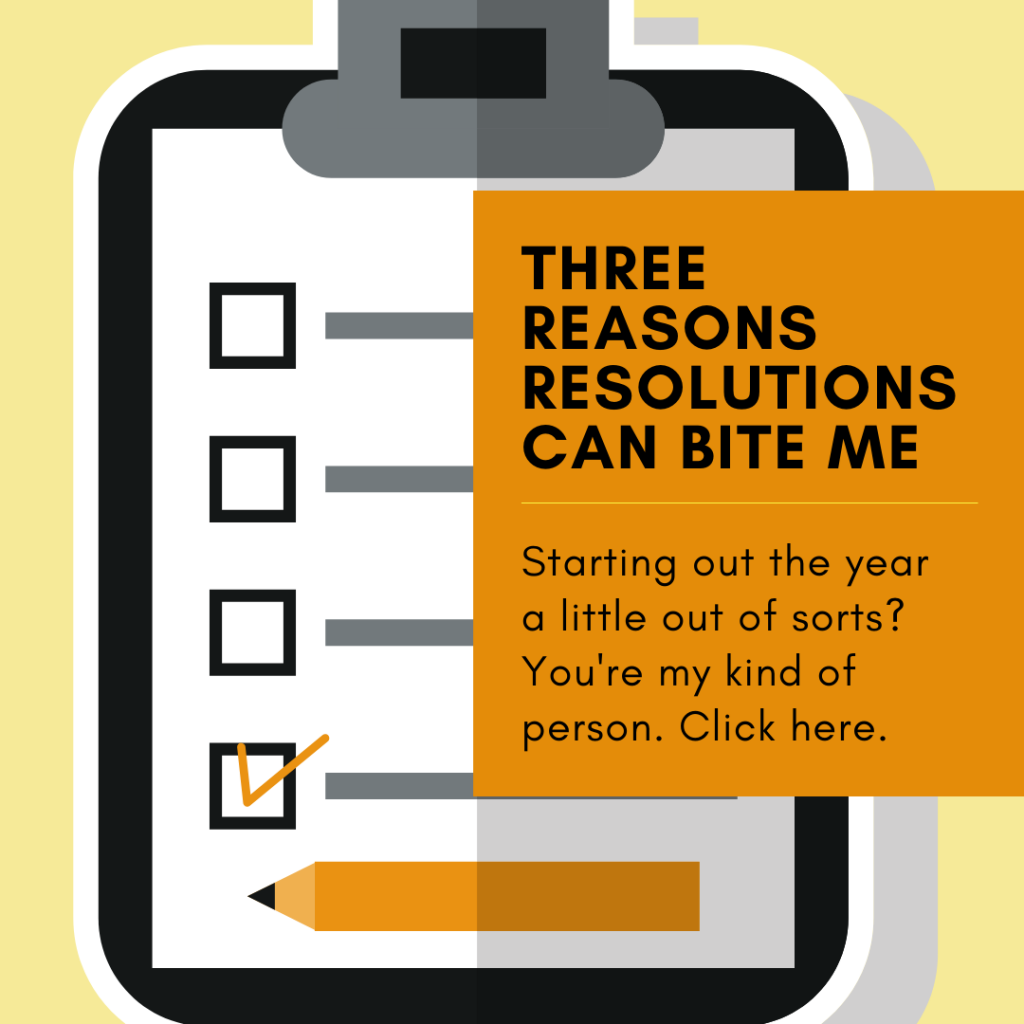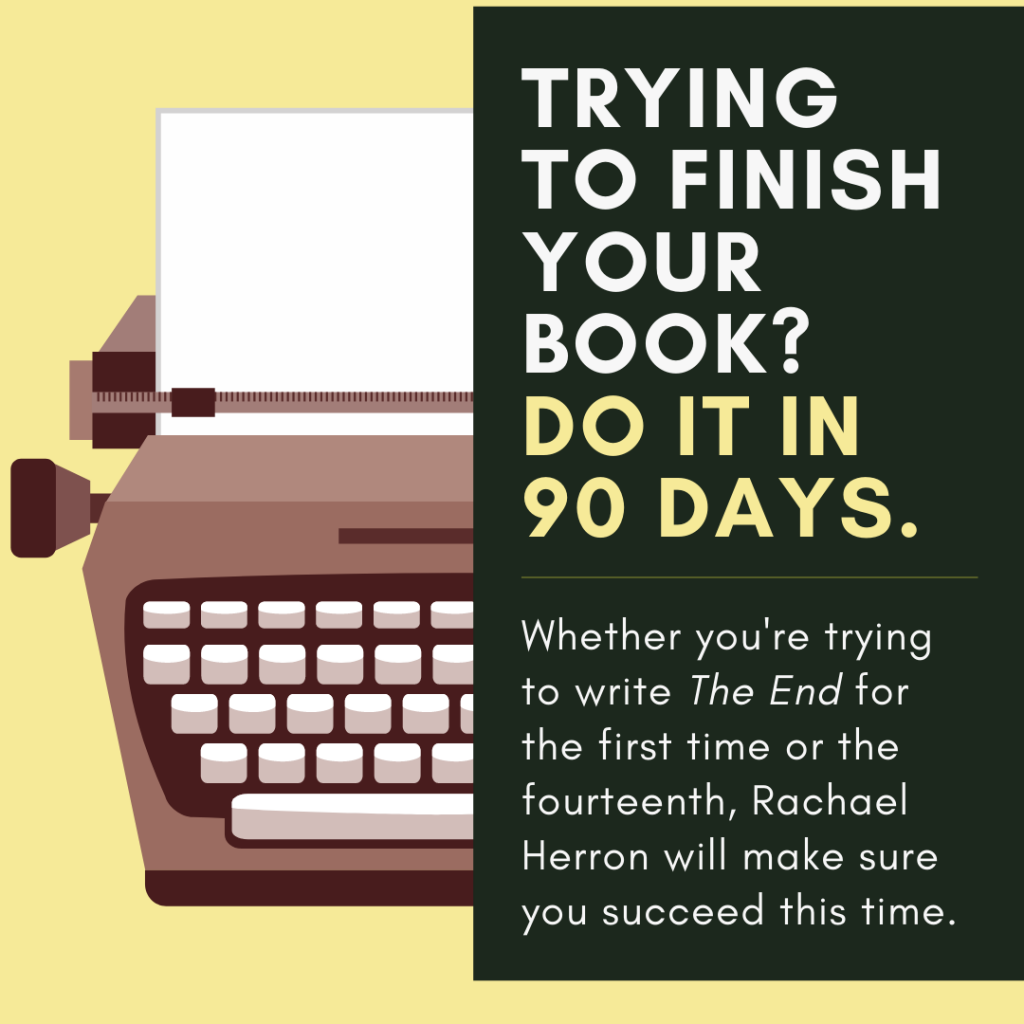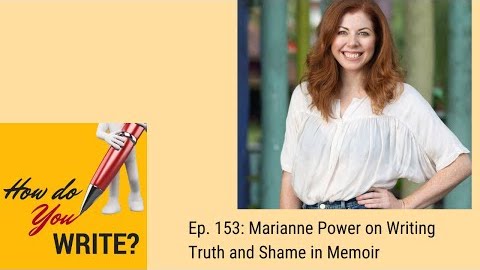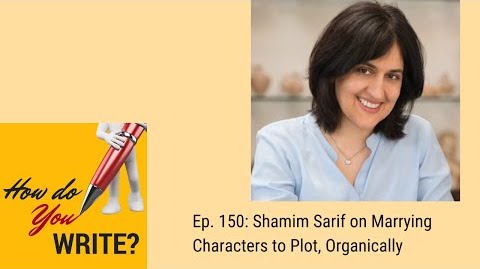Once upon a time, I fell in love with dogs. Well, really, I fell in love with my future wife Lala, and she had two dogs and I fell in love with them, too, and then suddenly, the world bloomed with dogs! It’s like when you buy a blue Nissan and then you see blue Nissans everywhere – I finally realized that dogs weren’t just mildly cute, but they were AWESOME and EVERYWHERE and after a while, I wanted one of my own.
We went to shelters one day. I was gonna get me a dog. I met Clara. I liked her a lot. We decided to think about her, so we went to breakfast. In the middle of breakfast, halfway across Oakland, I suddenly fell in love with her. “She’s mine!” I realized. “We have to go. Now! What if someone else gets her?”
We made it in time (there was another family looking at her then, but we got there first. So ha).
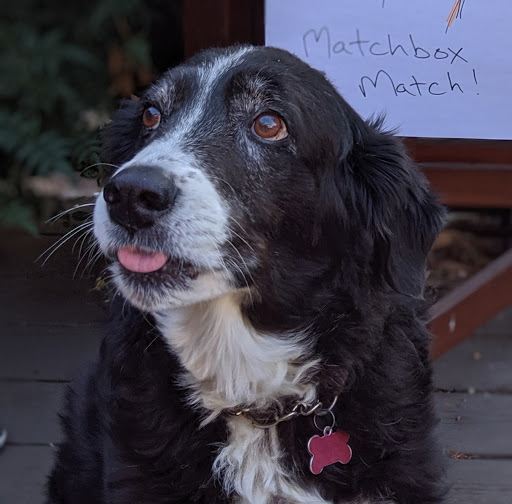
We took her home. The next morning, Lala and I were sitting on the back porch, eating bagels. The back door was open. Clara ran out and past us, a bagel held in her lower lip, the container of cream cheese in her upper lip.
Lala looked at me and said, “Your dog is so dumb. She forgot the knife.”
Clara was the nicest living being I’ve ever met. I never saw her get mad even once. She chewed up the whole house as a young dog, true. But she got over that (although she never gave up a chance to chew and rip up important papers).
But with people and other animals, she was the most empathetic dog I’ve ever seen. She’d play rough with big dogs, and softly with small ones. Once, a baby friend was visiting our house. The baby was propped up on the couch. She was old enough to sit and hold things but not walking yet. She dropped her teddy bear and it rolled off the couch. Clara picked it up and set it in front of her gently, nudging it just enough so the baby could grab it, and then they continued this game for half an hour.
This is how she played with little dogs:
Then we got her a cat (or really, we got two kittens, and Waylon chose her for his very own. Clara was bemused by this.
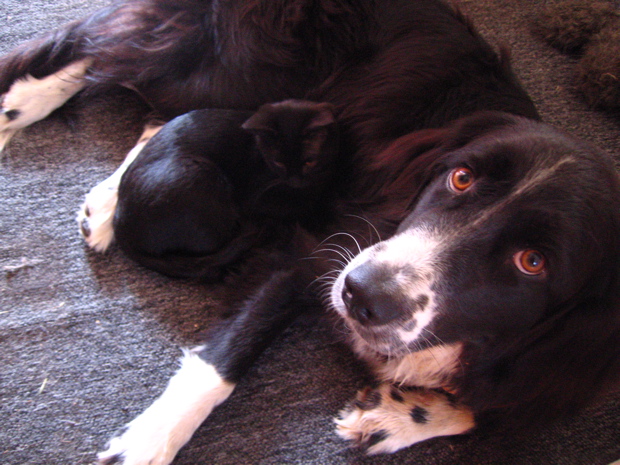
For many years, Waylon was usually wet. This is why:
Once, we were very broke. Lala really wanted a copy of the magazine The Shambala Sun. She bought it. She came home and put it on the counter. She walked away for five minutes, and when she returned, it was in pieces, torn to bits silently. Lala was mad. That was seven whole dollars, wasted. Torn up on the floor. Our friend Rachel O. heard this story. She subscribed Clara to the magazine, and to this day, Clara Hehu gets credit card offers and Buddhist donation appeals.
Her favorite place was the Albany Bulb, where she turned into a Sand Monster. Nothing made her happier than swimming and then rolling in the sand.
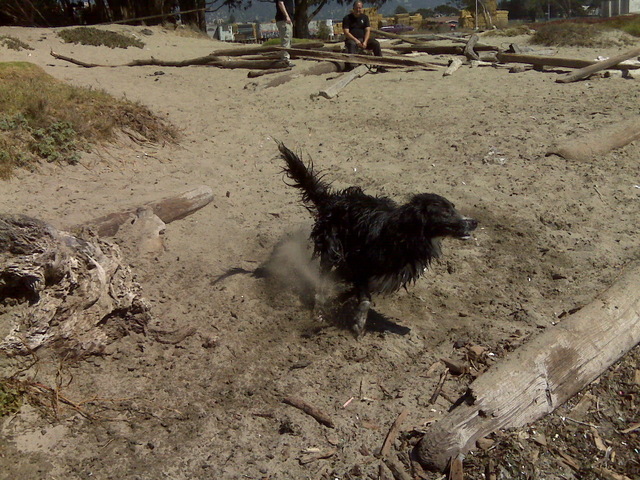
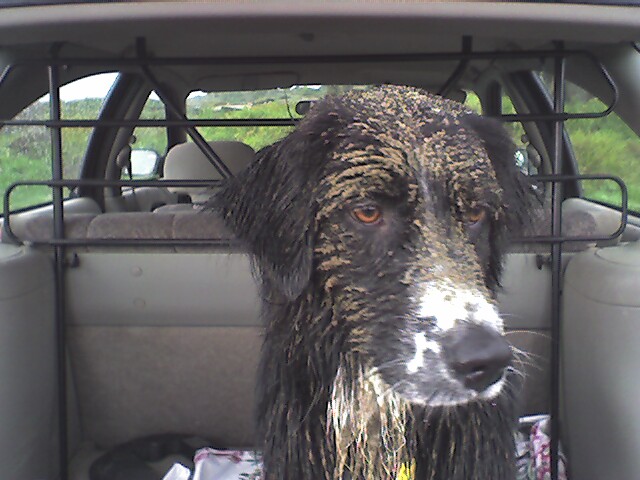
Clara was in my first book, Abigail’s dog in How to Knit a Love Song. In the American version, I forgot to get her out of Abigail’s truck before a cliff collapsed and TO THIS DAY, I get worried emails about Clara. (We caught it for the Australian version and left her safely tied to a tree, so these emails only come from Americans and Canadians.)
I’ve always, always been able to write back and say that Clara is okay. That she’s real. That she’s snoring safely behind my chair.
Because Clara was not only my best dog, but she’s also been my coworker for the last four years. Every other animal in this house loves Lala best, including Dozy (it just happens), but not Clara. She and I belonged to each other. Always near me, in these last few weeks, she’s been even more clingy, unwilling to let me out of her sight.
We ran hundreds of miles together. When I’d take a walk break, I’d say, “Walk.” Then I’d say, “Scritch,” and she’d raise her head and lean toward me. She was just the right height for me to scritch her ears without leaning over.
Lord, could she RUN.
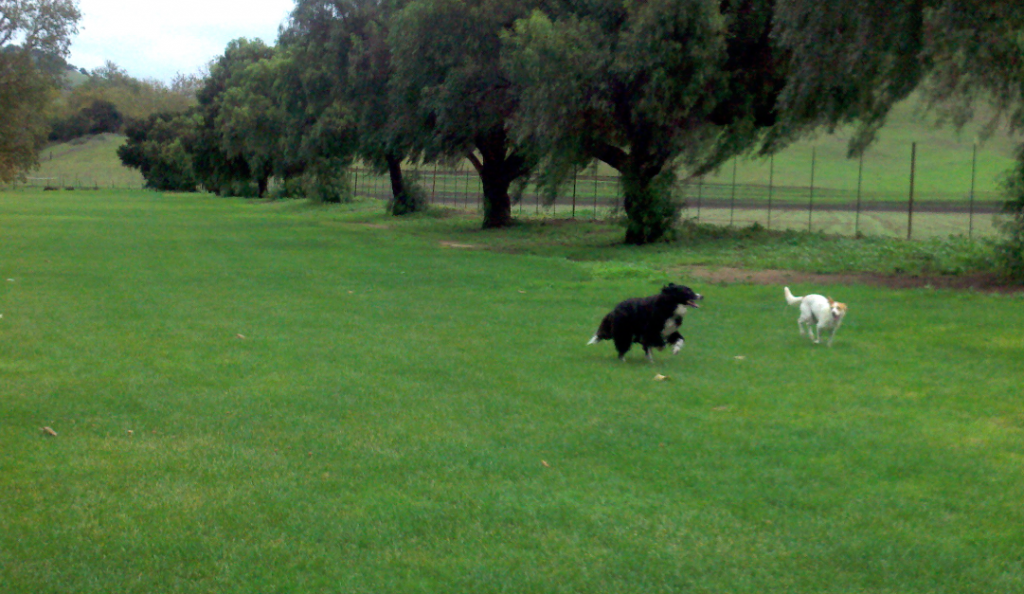
She got sick about a month ago. Tumor in the stomach (that looked like a simple infection at first). We tried everything. She hated getting pills, but she never snapped or bit or even snarled.
Today, we took her to the beach she loved the best.
This is when she realized we were near the beach, and not the vet:
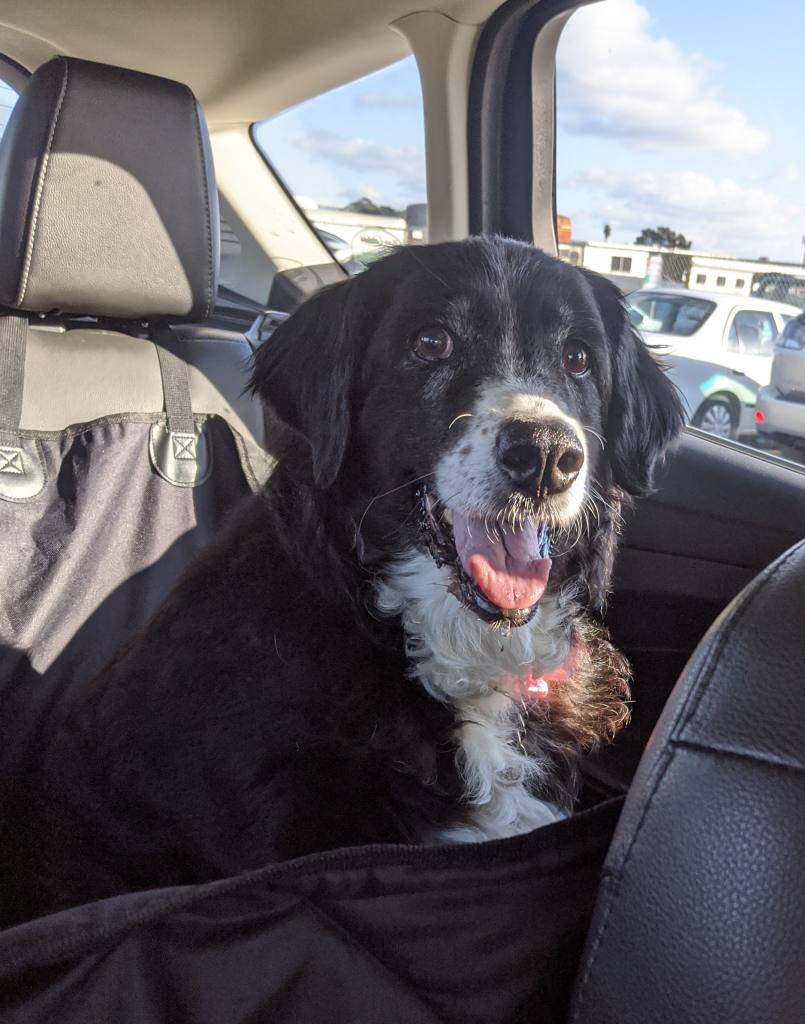
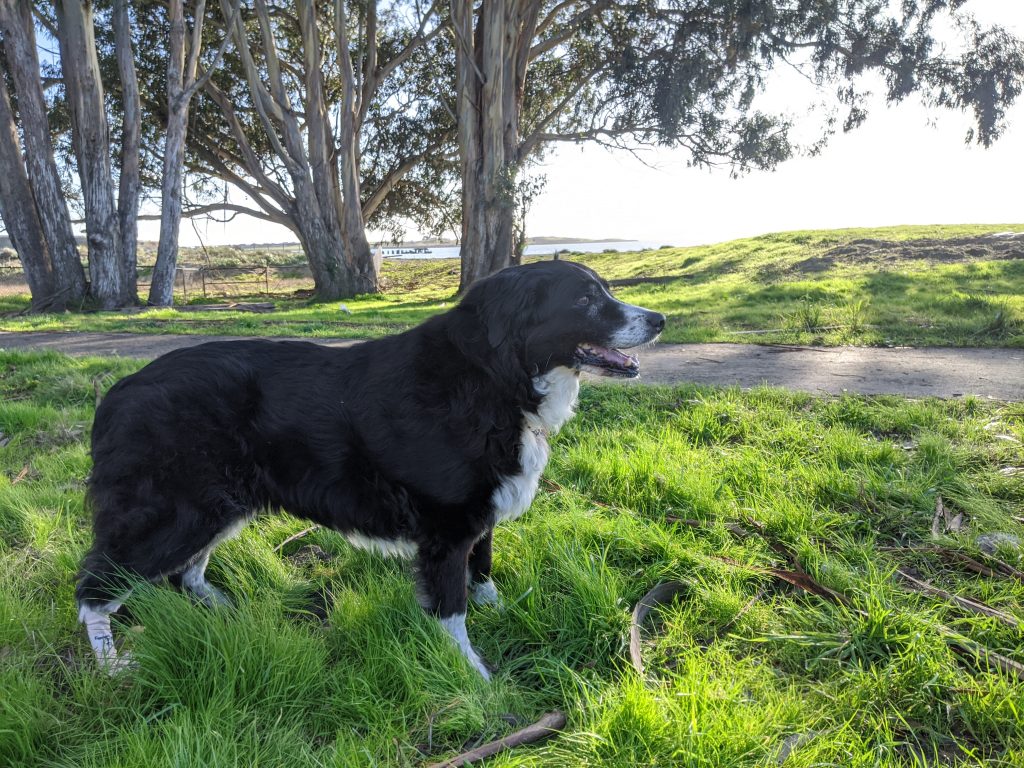
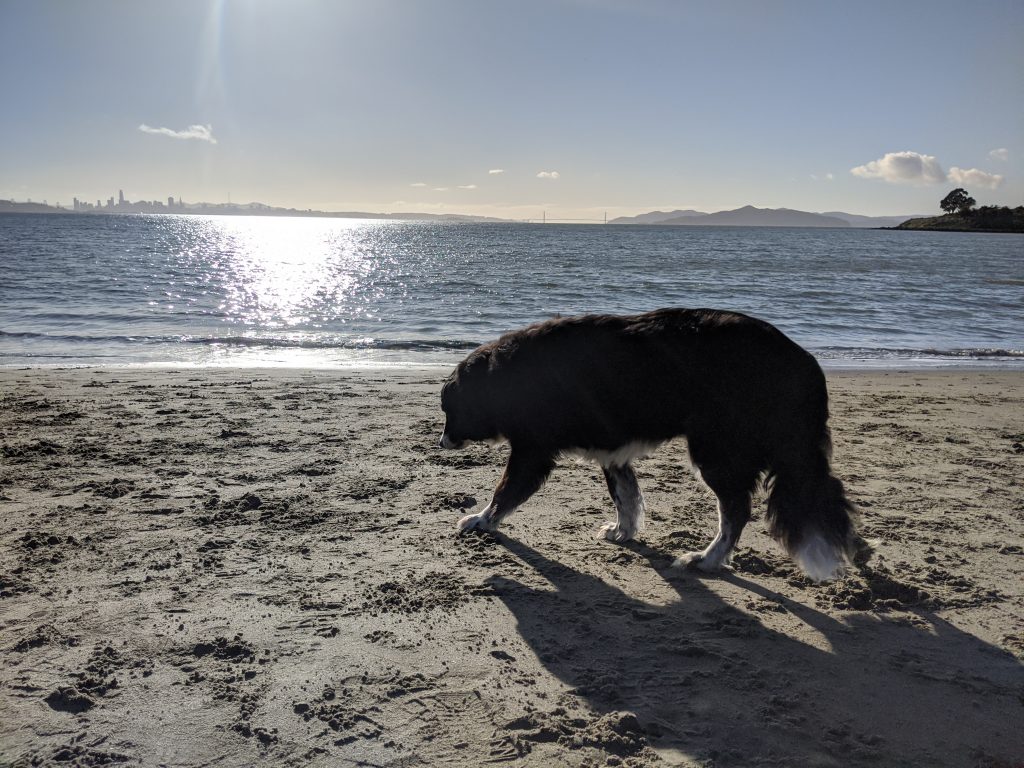
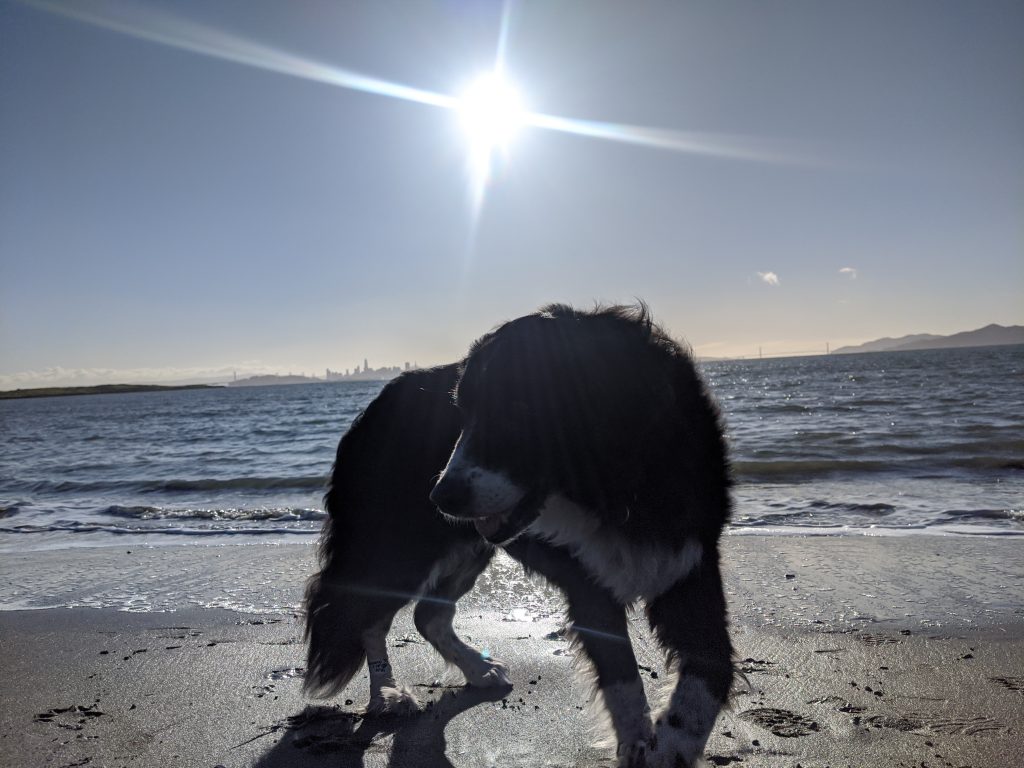
We had a wonderful (and excruciating) last walk. (Look, SF is visible behind her, as is the Golden Gate Bridge).
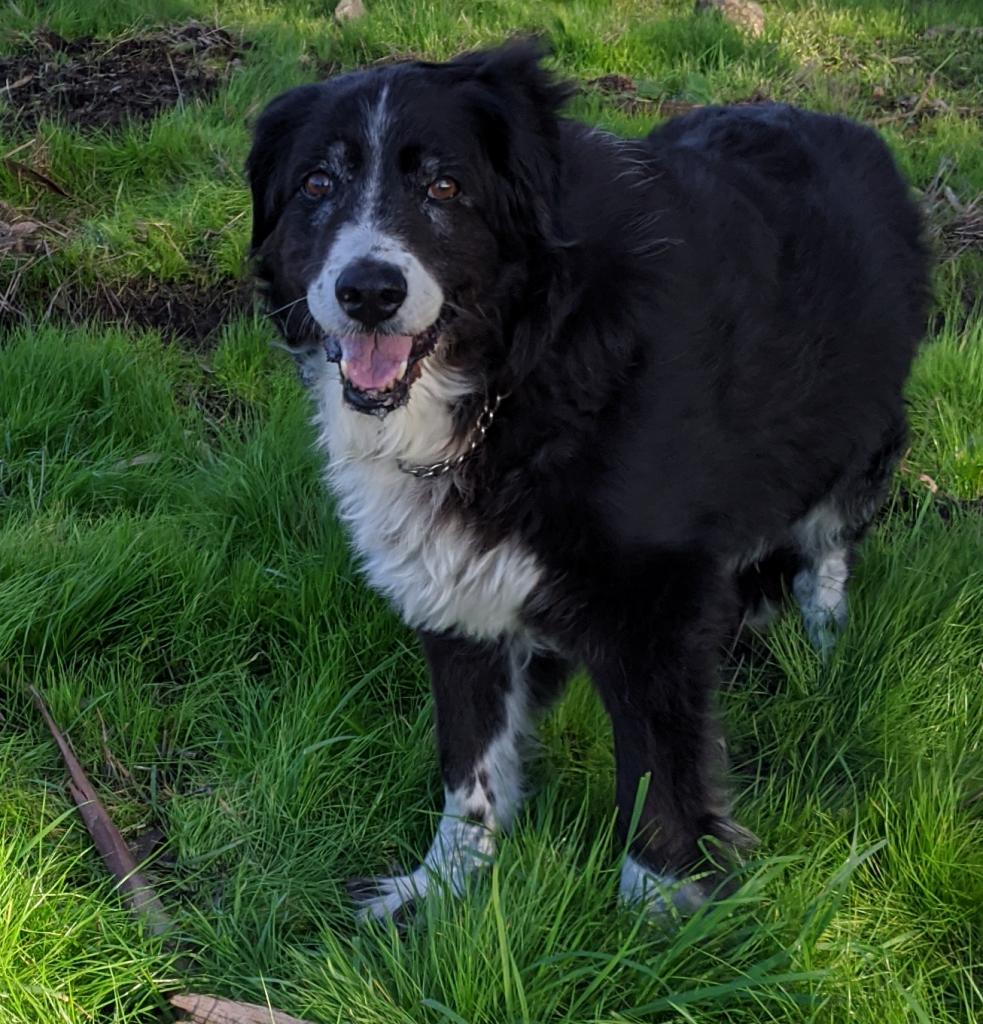
Clara was made of grace. When I think of the word, which I love, I see her face. She gave, and she loved, and she napped, and she just was.
I was gone for work for 9 days, and I just got home two days ago. When I got home, she was sleeping in front of the door, something she never did. She’d moved herself there right about the time my airplane had touched down, Lala said.
She’d waited for me to come home.
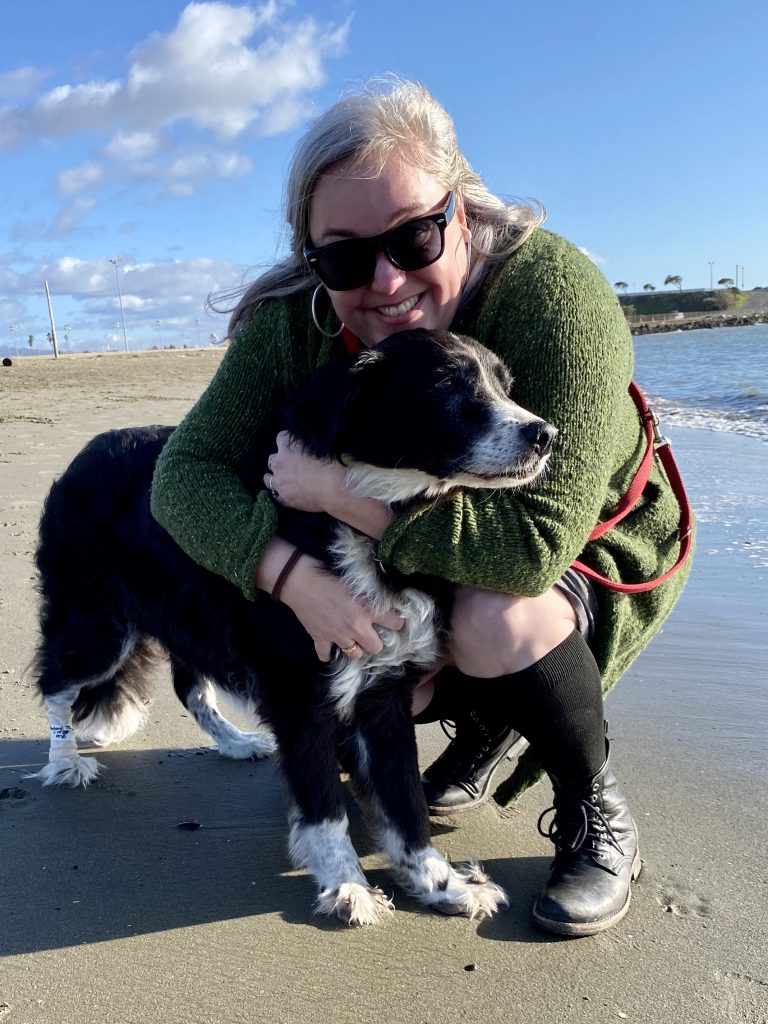
Goodnight, my sweetest girl. Run fast, and run free.
